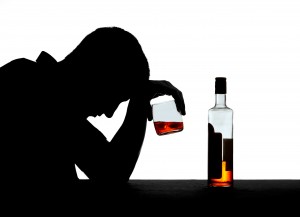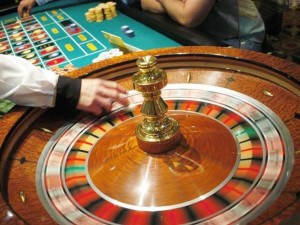 Eating disorders share many of the same characteristics as other addictions. As such once recognised they can be treated. Eating disorders are characterized by an unhealthy attitude towards food. They frequently coexist with other illnesses such as depression, substance abuse, or anxiety disorders.The most common eating disorders are:
Eating disorders share many of the same characteristics as other addictions. As such once recognised they can be treated. Eating disorders are characterized by an unhealthy attitude towards food. They frequently coexist with other illnesses such as depression, substance abuse, or anxiety disorders.The most common eating disorders are:
Anorexia Nervosa:
Deliberate weight loss is the main symptom of this condition. Individuals with Anorexia Nervosa try to keep their weight as low as possible by an insufficient intake of food and excessive exercising. Over time Anorexia can cause serious long term health problems. An individual with Anorexia Nervosa has a distorted body image and may continue to lose weight even when below a healthy weight. The weight loss might then become severe or life threatening and if not treated may be fatal.
Bulimia Nervosa:
This involves cycles of bingeing (overeating) and purging (ridding the body of the excess food, usually by vomiting or taking laxatives). The binging and purging cycle can occur several times a week to multiple times a day. Bulimic behavior is done secretly because it is often accompanied by feelings of disgust or shame. The binging and purging cycle can cause serious long term health problems for the individual, including but not limited to acid reflux, gastrointestinal problems and loss of teeth.
Compulsive Eating:
Compulsive eaters have a preoccupation with food, feel compelled to over eat and often loose control over the amount that they eat. Unlike bulimia nervosa, periods of binge-eating are not followed by purging, fasting or excessive exercise, as such binge eaters are often overweight or obese. This may in turn feed into existing feelings of self-loathing which leads an individual to compulsively over eat, thus perpetuating the cycle. An individual who compulsively over eats is risking long term damage to their health and is at higher risk for developing cardiovascular disease and high blood pressure.
Some signs that you may have an eating disorder:
Do you binge and purge?
Do family members of friends have concerns about your weight or your relationship with food?
Do you feel shame or guilt after eating?
Do you often feel “out of control” around food?
Do you feel shame and guilt around eating and your weight?
Do you isolate yourself or not attend social events because of how you feel about your weight?
Do you lie to others about the amount that you eat?
This is by no means a definitive list, but if you identify yourself as having one or more of these symptoms please do contact me and we can discuss ways in which to help you with your eating disorder.
 Compulsive shopping was recognised as a psychiatric disorder in the early 20th century. Similar to the use of alcohol and drugs an individual will compulsively shop in an attempt to avoid their feelings and can occur when a person feels depressed, lonely and angry. The “good feeling” is temporary as compulsive shopping and spending generally makes a person feel worse.
Compulsive shopping was recognised as a psychiatric disorder in the early 20th century. Similar to the use of alcohol and drugs an individual will compulsively shop in an attempt to avoid their feelings and can occur when a person feels depressed, lonely and angry. The “good feeling” is temporary as compulsive shopping and spending generally makes a person feel worse. Having an addiction to drugs means that you are controlled by your need for a particular substance to satisfy cravings and prevent withdrawal symptoms. Addiction is not dependent on the type of drug and can occur whether the drugs are “street” drugs, or prescribed by a doctor. When things have got to the point that you are unable to get through the day without a “fix”, then you have a problem.
Having an addiction to drugs means that you are controlled by your need for a particular substance to satisfy cravings and prevent withdrawal symptoms. Addiction is not dependent on the type of drug and can occur whether the drugs are “street” drugs, or prescribed by a doctor. When things have got to the point that you are unable to get through the day without a “fix”, then you have a problem. Many people can drink alcohol without it having a negative or harmful effect on themselves or those around them. However for some people alcohol has an increasingly negative effect on their behaviours and health. If you or a family member drink too much on a regular basis or find it increasingly difficult to manage without a drink then the situation may have changed from social use to an addiction.
Many people can drink alcohol without it having a negative or harmful effect on themselves or those around them. However for some people alcohol has an increasingly negative effect on their behaviours and health. If you or a family member drink too much on a regular basis or find it increasingly difficult to manage without a drink then the situation may have changed from social use to an addiction. For decades addiction has been recognised as an illness. The addicted person tries to avoid, or anaesthetise the way that they feel by using a substance or behaviour in a compulsive attempt to avoid their emotions. An individual may be addicted to drugs (street or prescription), or alcohol, gambling, shopping, sex and/or relationships, exercise, work, or they may have an obsession with food (which can manifest itself as bulimia, orthorexia nervosa or compulsive over eating).
For decades addiction has been recognised as an illness. The addicted person tries to avoid, or anaesthetise the way that they feel by using a substance or behaviour in a compulsive attempt to avoid their emotions. An individual may be addicted to drugs (street or prescription), or alcohol, gambling, shopping, sex and/or relationships, exercise, work, or they may have an obsession with food (which can manifest itself as bulimia, orthorexia nervosa or compulsive over eating). Self-harm refers to the act of cutting and burning oneself and is an addiction that is widely misunderstood. When a person is a self-harmer they engage in compulsive and obsessive behaviours which involve physically harming their bodies in an attempt to avoid feelings that they feel overwhelmed by and unable to cope with. Self-harming can include cutting, burning with cigarettes and general acts of physically harming one-self, such as punching one self, pulling your own hair, or hitting ones head against a wall repeatedly. Self-harm can also be accompanied by other addictive tendencies, especially drug addiction and eating disorders. Just like drug addiction and alcoholism the self-harmer has an incurable and progressive disease which can be managed through therapy and treatment. Some signs that you may need help with self-harming addiction: Have you ever been hospitalised as a result of your self-harming? Do you cut, burn or punch yourself as a means of dealing with painful emotions? Do you keep your self-harming a secret because of shame or fear of discovery? Do you often have scars, bruises or burns that you feel you must hide from others? Do you self-harm in order to punish yourself for something that you think you have done? Or for something that has been done to you? Do you feel that you HAVE to hurt or injure yourself in order to stop feeling overwhelmed by your emotions? Have you tried to stop harming yourself but been unable to do so? This is by no means a definitive list, but if you identify yourself as having one or more of these symptoms please do
Self-harm refers to the act of cutting and burning oneself and is an addiction that is widely misunderstood. When a person is a self-harmer they engage in compulsive and obsessive behaviours which involve physically harming their bodies in an attempt to avoid feelings that they feel overwhelmed by and unable to cope with. Self-harming can include cutting, burning with cigarettes and general acts of physically harming one-self, such as punching one self, pulling your own hair, or hitting ones head against a wall repeatedly. Self-harm can also be accompanied by other addictive tendencies, especially drug addiction and eating disorders. Just like drug addiction and alcoholism the self-harmer has an incurable and progressive disease which can be managed through therapy and treatment. Some signs that you may need help with self-harming addiction: Have you ever been hospitalised as a result of your self-harming? Do you cut, burn or punch yourself as a means of dealing with painful emotions? Do you keep your self-harming a secret because of shame or fear of discovery? Do you often have scars, bruises or burns that you feel you must hide from others? Do you self-harm in order to punish yourself for something that you think you have done? Or for something that has been done to you? Do you feel that you HAVE to hurt or injure yourself in order to stop feeling overwhelmed by your emotions? Have you tried to stop harming yourself but been unable to do so? This is by no means a definitive list, but if you identify yourself as having one or more of these symptoms please do  Sexual addiction:
Sexual addiction: